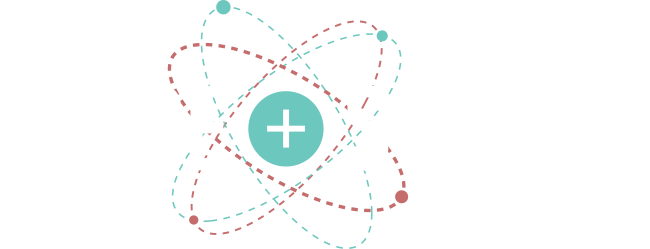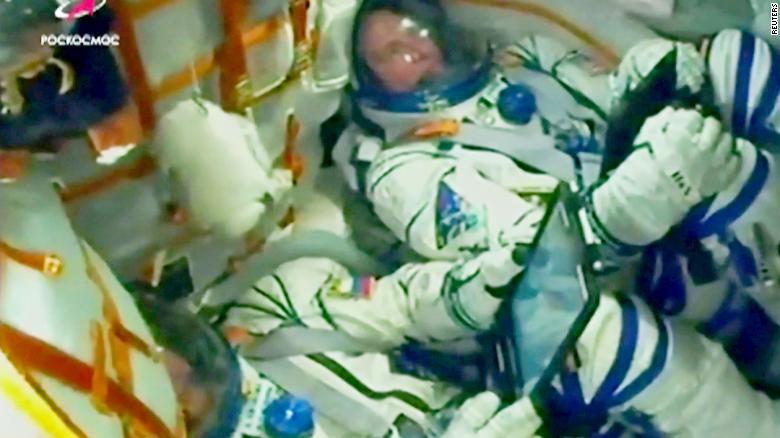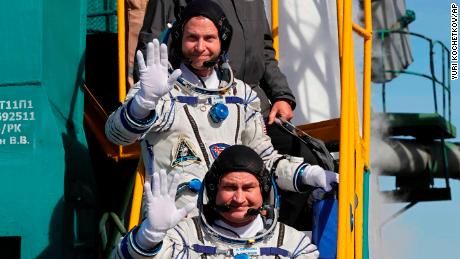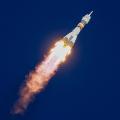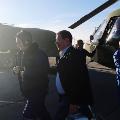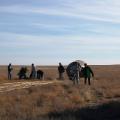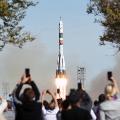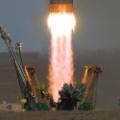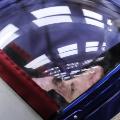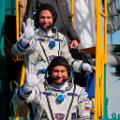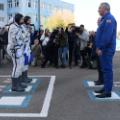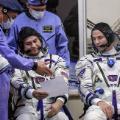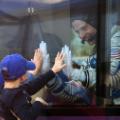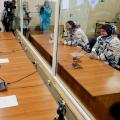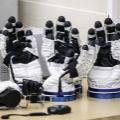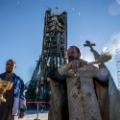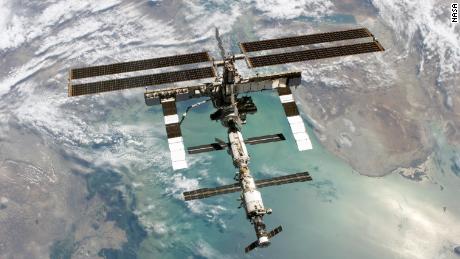(CNN)Russian investigators probing the failed launch of a Soyuz rocket transporting a crew to the International Space Station last month said damage to a sensor during the rocket's assembly led to the malfunction that forced an emergency landing.
Oleg Skorobogatov, the head of the commission probing the failure, announced the findings at a news conference Thursday in the Moscow region. He said the "abnormal separation" of the booster could be attributed to damage to the sensor. This caused the failure of a lid opening to an oxidizer tank's nozzle cover.
"The launch ended ... due to the abnormal separation of one of the side blocks (block D) that hit the central block (block A ) in the fuel tank, which led to its depressurization and, consequently, to the loss of stabilization of the space rocket," Skorobogatov told reporters.
Dramatic footage showed the capsule carrying the crew thumping down in a plume of dust, minutes after it launched from the Baikonur Cosmodrome in Kazakhstan.
The rocket had lifted off at 2:40 p.m. local time (4:40 a.m. ET) on a journey that was expected to involve four orbits of the Earth and take six hours.
Skorobogatov said the incident occurred around two minutes into the launch. He added that two additional rockets may have the same defect, and said the commission had recommended rechecking those rocket assemblies.
The Soyuz was ferrying NASA astronaut Nick Hague and Russian cosmonaut Alexey Ovchinin to the ISS for a six-month stay. Both survived an emergency landing following the booster failure.
Hague, who joined NASA's astronaut corps in 2013, was on his first space mission. He and Ovchinin were due to join Expedition 57 Commander Alexander Gerst of the European Space Agency, NASA Flight Engineer Serena Au├▒├│n-Chancellor and Roscosmos Flight Engineer Sergey Prokopyev on the ISS. Those three astronauts arrived at the station in June.
NASA currently depends on Russian Soyuz launch systems to carry crew members to the station.
Collaboration between the US and Russian space agencies has largely steered clear of geopolitical controversies, despite a standoff between Washington and Moscow that has continued since Russia's annexation of the Black Sea peninsula of Crimea from Ukraine in 2014 and allegations of Russian meddling in the 2016 US presidential election.
In August, however, the detection of a minute pressure leak on the International Space Station became the subject of intense media speculation in Russia. The leak was quickly repaired, but Roscosmos chief Dmitry Rogozin suggested that the problem was caused by something other than an accident or production defect.
Speaking with reporters in Moscow before the failed launch last month, NASA director Jim Bridenstine said that Russian-American cooperation in space remained robust.
"That relationship is strong, and whatever happens terrestrially, we've always been able to keep space exploration and discovery and science separate from whatever terrestrial disputes there may be," Bridenstine said.
"What we've got to do is we've got to very dispassionately allow the investigation to go forward without speculation, without rumor, without innuendo, without conspiracy," he continued.

